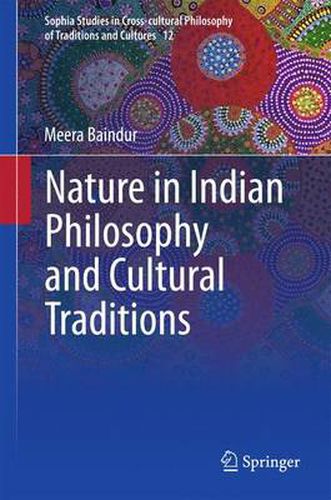Readings Newsletter
Become a Readings Member to make your shopping experience even easier.
Sign in or sign up for free!
You’re not far away from qualifying for FREE standard shipping within Australia
You’ve qualified for FREE standard shipping within Australia
The cart is loading…






This title is printed to order. This book may have been self-published. If so, we cannot guarantee the quality of the content. In the main most books will have gone through the editing process however some may not. We therefore suggest that you be aware of this before ordering this book. If in doubt check either the author or publisher’s details as we are unable to accept any returns unless they are faulty. Please contact us if you have any questions.
Working within a framework of environmental philosophy and environmental ethics, this book describes and postulates alternative understandings of nature in Indian traditions of thought, particularly philosophy. The interest in alternative conceptualizations of nature has gained significance after many thinkers pointed out that attitudes to the environment are determined to a large extent by our presuppositions of nature. This book is particularly timely from that perspective.
It begins with a brief description of the concept of nature and a history of the idea of nature in Western thought. This provides readers with a context to the issues around the concept of nature in environmental philosophy, setting a foundation for further discussion about alternate conceptualizations of nature and their significance. In particular, the work covers a wide array of textual and non-textual sources to link and understand nature from classical Indian philosophical perspectives as well as popular understandings in Indian literary texts and cultural practices. Popular issues in environmental philosophy are discussed in detail, such as: What is ‘nature’ in Indian philosophy? How do people perceive nature through landscape and mythological and cultural narratives? In what ways is nature sacred in India?
To make the discussion relevant to contemporary readers, the book includes a section on the ecological and ethical implications of some philosophical concepts and critical perspectives on alternate conceptualizations of nature.
$9.00 standard shipping within Australia
FREE standard shipping within Australia for orders over $100.00
Express & International shipping calculated at checkout
This title is printed to order. This book may have been self-published. If so, we cannot guarantee the quality of the content. In the main most books will have gone through the editing process however some may not. We therefore suggest that you be aware of this before ordering this book. If in doubt check either the author or publisher’s details as we are unable to accept any returns unless they are faulty. Please contact us if you have any questions.
Working within a framework of environmental philosophy and environmental ethics, this book describes and postulates alternative understandings of nature in Indian traditions of thought, particularly philosophy. The interest in alternative conceptualizations of nature has gained significance after many thinkers pointed out that attitudes to the environment are determined to a large extent by our presuppositions of nature. This book is particularly timely from that perspective.
It begins with a brief description of the concept of nature and a history of the idea of nature in Western thought. This provides readers with a context to the issues around the concept of nature in environmental philosophy, setting a foundation for further discussion about alternate conceptualizations of nature and their significance. In particular, the work covers a wide array of textual and non-textual sources to link and understand nature from classical Indian philosophical perspectives as well as popular understandings in Indian literary texts and cultural practices. Popular issues in environmental philosophy are discussed in detail, such as: What is ‘nature’ in Indian philosophy? How do people perceive nature through landscape and mythological and cultural narratives? In what ways is nature sacred in India?
To make the discussion relevant to contemporary readers, the book includes a section on the ecological and ethical implications of some philosophical concepts and critical perspectives on alternate conceptualizations of nature.